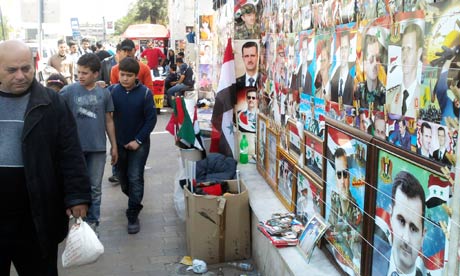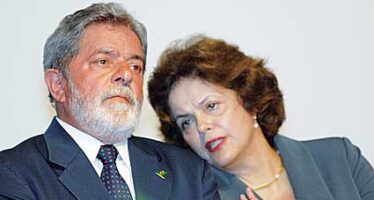Syria crackdown: hundreds resign from Ba’ath party
![]()
Members of president Assad’s ruling party have resigned in protest as uprising claims at least 500 lives
Katherine Marsh in Damascus and agencies
Syrian human rights organisation Sawasiah said that at least 500 civilians have been killed in the protests. Photograph: AP
Hundreds of President Bashar al-Assad’s ruling Ba’ath party have resigned in protest at an increasingly bloody crackdown on pro-democracy protesters that is believed to have claimed at least 500 lives.
News of the resignations emerged as a deeply divided UN security council failed to agree on a European and US-backed statement condemning the government’s use of violence.
The draft – proposed by France, Britain, Germany and Portugal – was opposed by several within the 15-member security council, including Russia, Lebanon and India.
Alexander Pankin, Russia’s ambassador to the UN, warned that a “real threat to regional security could arise from outside interference in Syria’s domestic situation”.
France, Britain, Germany, Italy and Spain summoned Syrian ambassadors in their countries to tell them they condemned the violence and said Assad must change tactics.
In a potential embarrassment for the British government, it emerged that Sami Khiyami, the Syrian ambassador to London, was still on the guest list for the royal wedding. The Foreign Office later announced that it had decided, with the agreement of Buckingham Palace, that the presence of the ambassador would be “unacceptable” and that he should not attend.
Meanwhile, the University of St Andrews, where Prince William and Kate Middleton studied, has announced it is to review the financing of one of its Syrian studies centres after the Guardian revealed that funding was arranged with Khiyami’s help.
Syrian human rights organisation Sawasiah said on Thursday that at least 500 civilians have been killed in the protests. Sawasiah, which was founded by jailed Syrian human rights lawyer Muhannad al-Hassani, also said thousands of Syrians have been arrested and scores have gone missing after demonstrations demanding political freedom and an end to corruption erupted almost six weeks ago.
Syria’s UN ambassador, Bashar Ja’afari, welcomed the UN’s inaction, and blamed the violence on “extremist groups”.
But while the international community failed to condemn the violence, signs of dissent within government ranks started to grow as more than 230 members of the monolithic party that has ruled Syria since 1963 announced their resignation.
“Considering the breakdown of values and emblems that we were instilled with by the party and which were destroyed at the hand of the security forces … we announce our withdrawal from the party without regret,” 30 party members from the coastal city of Banias said in a letter.
They accused security forces and pro-government gunmen of opening fire at homes, mosques and churches and inciting sectarian strife between the country’s Sunni majority and President Assad’s minority Alawite sect, an offshoot of Shia Islam.
The city – which sits near the Alawite’s mountain heartland – has seen repeated street protests, which have been met with gunfire, raids and mass arrests by the security forces.
About 200 members from the southern Hauran region – which includes the besieged city of Deraa – also stood down, citing the Ba’ath party leadership’s complicity with “crimes of the Syrian intelligence agencies”.
Deraa, where protests against the Assad regime began six weeks ago, has been surrounded by troops for days, and residents are reportedly running out of food, water and medicine.
Gunfire and sporadic explosions were heard in the city on Wednesday night, after dozens of tanks were seen heading to the city.
“We have no electricity, no water, no telephones and no bread,” resident Abdullah Abazeid told the Associated Press by satellite telephone. “The situation is terrible.”
Bodies of protesters killed by security forces are reportedly being stored in refrigerated trucks, and residents reported that snipers were firing at people in the streets.
-
On Monday, the ultra-loyal Fourth Mechanised Division, commanded by Assad’s brother Maher, were dispatched to the city. Reports from opposition figures and Deraa residents, which could not be confirmed, said several soldiers from another unit had refused to fire on civilians.
Some residents said at least five army officers had sided with demonstrators, and conscripted soldiers sent into the city were quietly refusing orders to detain people at checkpoints and were allowing some people through to get scarce supplies.
One diplomat told Reuters there had been at least one instance this month of soldiers confronting secret police to stop them shooting at protesters.
“No one is saying that Assad is about to lose control of the army, but once you start using the army to slaughter your own people, it is a sign of weakness,” he said.
But the Syrian government denied there had been any splits in the military, which is seen as fiercely loyal to Assad.
In Damascus, news of the UN’s failure to condemn the crackdown was met with resigned disappointment, but activists have been heartened by news of the resignations. “It is only low-level but it shows that discontent is rippling through the ranks,” said one local analyst.
Although the officials have no real power, splits from the party, whose position as the leading party in state and society is enshrined in article 8 of the constitution, are rare. At least 10% of the 22 million population are believed to belong to the party, whose traditional power base was among the rural and poorer sectors of society to which many of the protesters belong.
Activists have been angered by the muted response of their Arab neighbours and had been hoping for a stronger international response. They have called for sanctions, travel bans and the freezing of assets – but are adamantly opposed to military intervention.
Both pro- and anti-regime camps have vowed to turn out in large numbers on Friday.
Katherine Marsh is a pseudonym for a journalist living in Damascus
Related Articles
Dealing with the Real Anders Breivik
![]()
The Ideologues of Islamophobia by JEFF SPARROW How, exactly, could a right-wing terrorist convince liberals he was, in fact, a
Obama Walks Fine Political Line on Terror Threat
![]()
President Obama spoke Friday about the discovery of explosives on planes bound for the United States.By HELENE COOPER and PETER
Primeras impresiones de las elecciones
![]()
Igor Ojeda “Quiero agradecer a Dios por haberme traído hasta aquí”, dijo Dilma Rousseff en sus consideraciones finales del debate



